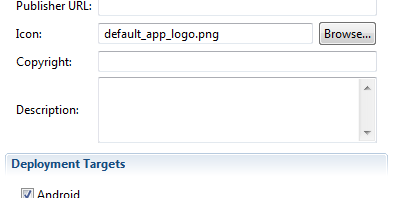Tag: android
-
Enumerating all providers, and respective installed apps, in Android
Android ships with a number of content providers that store common data such as contact information, calendar information, and media files. These classes offer simplified methods of adding or retrieving data from these content providers. If you need to list all the installed providers, for debugging and other purposes, use the following code:
-
How To Localize an Android Application
-
Android Development, Best Practices
Compiled by Futurice, here is the summary of what they have compiled so far: Use Gradle and its recommended project structure Put passwords and sensitive data in gradle.properties Don’t write your own HTTP client, use Volley or Retrofit libraries Use the Jackson library to parse JSON data Use Volley or Retrofit+OkHttp+Picasso for networking and images…
-
Android debugging: adb via tcp
Very simple instructions here on how to debug android apps via tcp.
-
Quicky check if Data connection is available (Android SDK)
Just use the following method: public boolean isOnline() { boolean status=false; try{ ConnectivityManager cm = (ConnectivityManager) getActivity() .getSystemService(Context.CONNECTIVITY_SERVICE); NetworkInfo netInfo = cm.getActiveNetworkInfo(); status=netInfo.isConnected(); }catch(Exception e){ e.printStackTrace(); return false; } return status; }
-
Android Toasts (e.g. small notifications), how to use in Fragments
The syntax is very simple. The example below is invoked from inside a Fragment, so the first parameter (Context) is the activity that holds the fragment: Toast.makeText(getActivity(),R.string.asset_added_fav,Toast.LENGTH_SHORT).show(); The second parameter is the message, the third is the duration, Toast.makeText returns an instance of Toast, that we “.show()” immediately.
-
Wunderlist for Android is going native, drops Appcelerator Titanium Mobile
Appcelerator’s approach to the Android platform has made another victim, a significant one: 6Wunderkinder’s popular Wunderlist ditched Titanium Mobile (TM) for Android, and is now a native app. “(…) Wunderlist is now native – smaller, faster and more stable.” Matthew Bostock, 6Wunderkinder’s blog Translated, Wunderlist got rid of TM’s biggest problems: Size: even the smallest…
-
Now that WebOS died, which is the best development crossplatform for iOS, Android, RIM and WP7?
Yes, the excellent WebOS is defunct, and it will never be the mainstream player as, at least technically, it deserved. For all of us developing for the mobile world that don’t have the time or budget to develop natively in all the mainstream platforms, its one less player to target. Myself, personally, am deciding/evaluating available options for…
-

Titanium Mobile’s Android development now less painful than Prostate Exam – Mobile SDK 1.8 (!) + Fastdev
A few days ago, Appcelerator announced a really cool new feature: Fastdev for Titanium Mobile. This thing cuts dramatically development times for Android apps as all the wait time spent recompiling and re-publishing the app to the emulator simply disappears!
-

Titanium Mobile SDK 1.8 available
Titanium Mobile SDK 1.8.0 is already available in the Appcelerator’s continuous integration (CI) area: Just choose the “master” branch and download the latest SDK files for your O.S.!
-
Updated Titanium autocomplete for 1.5.1 using Eclipse and Aptana
Here is the uploaded javascript header file, updated for Appcelerator’s Titanium Mobile version 1.5.1. This can be used with Eclipse+Aptana’s autocomplete, using the method described by James David Low a while back.
-
Titanium Autocomplete
James Low has a AppCelerator Titanium’s API AutoComplete for Eclipse+Aptana. Download it here http://jameslow.com/2010/05/31/titanium-autocomplete-eclipse/ I haven’t tried it yet, I’m using notepad++ still, but I’ll give it a go ASAP!
-
Android ahead of iPhone, second to Blackberry
The open-source Android smartphone market just hit a milestone of sorts: it surpassed the iPhone in popularity, moving into the second overall spot behind industry leader RIM OS (BlackBerry). More in ADT Magazine
-
New Titanium Mobile SDK for iPhone and Android
Appcelerator.com just released the new Titanium Mobile SDK 1.3. This release includes mostly bug fixes, for both iPhone and Android platforms and opens the door for iPhone 4.0.